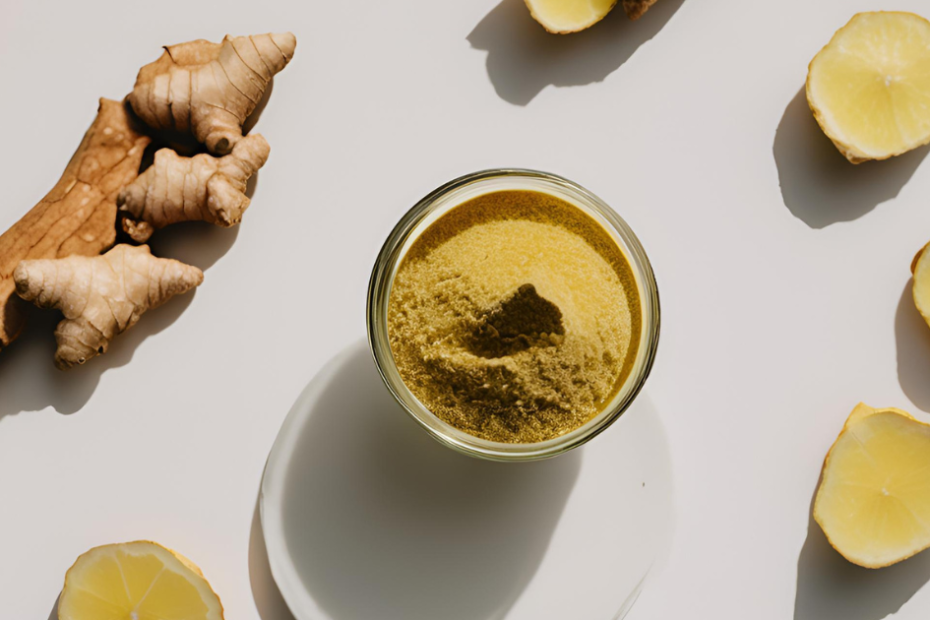Ginger (Zingiber officinale), a knobby, aromatic root, has been revered for centuries in traditional medicine and culinary practices. From ancient Ayurvedic texts to modern kitchens, ginger’s versatility as a healing agent and flavor enhancer remains unmatched. Today, science validates its role as a potent natural remedy, particularly for digestive health and immune support. This article explores ginger’s anti-inflammatory and antioxidant properties, its ability to soothe digestive discomfort, and its power to fortify the immune system.
The Science Behind Ginger’s Power
Ginger’s therapeutic effects stem from its bioactive compounds, including:
- Gingerols: Anti-inflammatory and antioxidant agents responsible for ginger’s pungent flavor.
- Shogaols: Formed when ginger is dried or cooked, these compounds enhance bioavailability.
- Zingerone: Contributes to ginger’s sweetness and has antimicrobial properties.
These compounds work synergistically to combat oxidative stress, reduce inflammation, and modulate immune responses.
Ginger and Digestive Health
1. Relieves Nausea and Vomiting
Ginger is a well-established remedy for nausea, supported by robust scientific evidence:
- Pregnancy: A meta-analysis of 12 studies found ginger reduced nausea in 80% of pregnant women without adverse effects (Nutrition Journal, 2014).
- Chemotherapy-Induced Nausea: Ginger supplements (1–1.5g/day) significantly reduced severity in cancer patients (Journal of Clinical Oncology, 2023).
- Motion Sickness: Consuming 1–2g of ginger before travel minimizes dizziness and vomiting (European Review for Medical and Pharmacological Sciences, 2020).
How It Works: Ginger accelerates gastric emptying and binds to serotonin receptors in the gut, reducing nausea signals to the brain.
2. Eases Indigestion and Bloating
Chronic indigestion (dyspepsia) often results from delayed stomach emptying. Ginger stimulates digestive enzymes and bile production, speeding up digestion:
- A 2021 study showed 1.2g of ginger powder before meals reduced bloating by 40% in participants with functional dyspepsia (American Journal of Gastroenterology).
3. Reduces Gut Inflammation
Ginger’s anti-inflammatory properties alleviate conditions like irritable bowel syndrome (IBS) and colitis:
- In animal studies, gingerol suppressed pro-inflammatory cytokines (TNF-α, IL-6), easing colitis symptoms (Journal of Ethnopharmacology, 2022).
- Human trials suggest ginger reduces IBS-related pain and irregular bowel movements (PLOS ONE, 2019).
Ginger’s Role in Immune Support
1. Antioxidant Defense
Ginger neutralizes free radicals with an ORAC (Oxygen Radical Absorbance Capacity) score of 28,811—higher than pomegranates or blueberries. This reduces oxidative stress, a key driver of chronic diseases and weakened immunity.
2. Anti-Inflammatory Action
Chronic inflammation undermines immune function. Ginger inhibits COX-2 enzymes (similar to NSAIDs) and lowers inflammatory markers:
- Daily ginger intake (2g) reduced muscle inflammation post-exercise by 25% (Journal of Pain Research, 2018).
- Reduces severity of inflammatory conditions like rheumatoid arthritis (Arthritis & Rheumatology, 2020).
3. Antimicrobial and Antiviral Effects
- Bacterial Infections: Ginger extract inhibits H. pylori, a bacteria linked to ulcers (Journal of Traditional and Complementary Medicine, 2021).
- Viral Defense: Gingerols block viral entry into cells, potentially reducing duration of colds and flu (Molecules, 2020).
How to Incorporate Ginger into Your Routine
1. Fresh Ginger
- Tea: Steep 5–10g of sliced ginger in hot water with lemon and honey.
- Cooking: Add grated ginger to stir-fries, soups, or smoothies.
2. Supplements
- Capsules: 250–500mg standardized extract, 1–3 times daily.
- Powder: 1–2g dissolved in water or juice.
3. Recipes for Wellness
- Immune-Boosting Shot: Blend 1 inch ginger, 1 orange, and a pinch of turmeric.
- Digestive Aid: Combine grated ginger, apple cider vinegar, and honey for a pre-meal tonic.
Safety and Side Effects
- Dosage: Up to 4g daily is safe for most adults. Higher doses may cause heartburn.
- Contraindications: Avoid large amounts if on blood thinners (ginger may enhance effects).
- Pregnancy: Consult a doctor before using supplements.
Conclusion
Ginger’s dual role in soothing digestion and enhancing immunity makes it a cornerstone of natural health. Whether sipped as tea, added to meals, or taken as a supplement, this ancient root offers modern solutions for holistic wellness. By integrating ginger into your daily routine, you harness nature’s pharmacy to combat inflammation, support gut health, and strengthen immune defenses.
Pro Tip: Pair ginger with black pepper to boost absorption of its active compounds by up to 200%!
